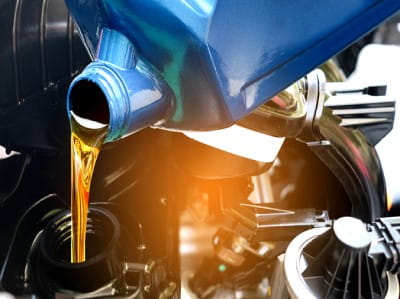John Townsend
Public Relations Manager, DC
O: (202) 481-6820 (ext. 4462108)
C: (202) 253-2171
jtownsend@aaamidatlantic.com
WASHINGTON, D. C. (Friday, December 22, 2017) –– Nearly a third of the nation’s population - 97.4 million Americans, a tally including 2.4 million Washington area residents, are hitting the road for the Christmas/New Year’s holy days and holidays. On their holiday road trips, some motorists will squander their Christmas bonus purchasing premium-grade gasoline, although their cars are designed to run on regular fuel. While premium gas offers some benefit to select vehicles, it is becoming increasingly expensive for drivers, new research from AAA shows. High-test is 22 percent higher a gallon than regular is in the nation’s capital.
Like getting a lump of coal in your Christmas stockings, the retail cost of premium gasoline in Washington, D.C. was $3.28 per gallon yesterday, compared to $2.69 a gallon for regular unleaded, a 59 cent difference. Across the Washington metro area the price point for premium is $3.03 per gallon, versus $2.42 a gallon for regular grade, a differential of 61 cents. In recent years, the price gap between premium and regular-grade gasoline has risen from a historically steady 10 percent a gallon to 25 percent or more per gallon.
Past AAA research has shown no benefit in using premium gasoline in a vehicle designed to operate on regular fuel. New testing indicates that some vehicles – those that recommend, but do not require premium gas – may see increased fuel economy and performance under certain driving conditions when using the higher-octane gas.
“Unfortunately, the high cost of premium gasoline may outweigh that advantage for many drivers,” said John B. Townsend II, AAA Mid-Atlantic’s Manager of Public and Government Affairs. “Consumers will squander $175 million on premium gas in December alone (or $1.2 billion a year), although fewer cars built today require it. Don’t be a prodigal. If your vehicle does not require it, determine whether it is worth the investment in the short term and the long run.”
In partnership with the Automobile Club of Southern California’s Automotive Research Center, AAA tested a variety of vehicles that recommend, but do not require, the use of premium (91 octane or higher) gasoline. Although drivers of these vehicles are unlikely to see any benefit from using premium gasoline during typical city or highway driving, a combination of laboratory and on-road tests were performed to simulate extreme driving scenarios such as towing, hauling cargo and aggressive acceleration.
When using premium fuel in these vehicles under these conditions, AAA tests found that:
- Fuel economy for test vehicles averaged a 2.7 percent improvement. Individual vehicle test result averages ranged from a decrease of 1 percent (2016 Audi A3) to an improvement of 7.1 percent (2016 Cadillac Escalade).
- Horsepower for test vehicles averaged an increase of 1.4 percent. Individual vehicle test result averages ranged from a decrease of 0.3 percent (2016 Jeep Renegade) to an improvement of 3.2 percent (2017 Ford Mustang).
- According to national averages, the price difference between regular and premium gasoline is approximately 20 to 25 percent, or 50 cents per gallon.
- The modest fuel economy improvements found in AAA tests do not offset the higher cost of premium gasoline.
“AAA’s testing reveals that drivers could see modest gains in fuel economy and performance when opting for premium gasoline in vehicles that recommend, but do not require, the higher-octane fuel,” said Megan McKernan, manager of the Automobile Club of Southern California’s Automotive Research Center. “Those seeking the maximum capabilities of their performance-focused or utility vehicle may see some benefit from using premium gasoline, particularly over the long haul.”
“There’s no question that higher-octane premium fuel has the potential to boost a vehicle’s fuel economy and performance, however, engines have to be calibrated to require that fuel to see the full benefit,” said John Nielsen, AAA’s managing director of Automotive Engineering and Repair. “Based on AAA’s testing, vehicles that only recommend premium gasoline can’t take full advantage of higher octane fuel and, as a result, the benefit that comes from upgrading to premium gasoline may not offset its high cost.”
Last year, nearly 1.5 million new vehicles sold in the United States recommend, but do not require, premium gasoline. The trend toward recommending or requiring higher-octane fuel continues to rise as manufacturers work toward meeting stringent CAFE (Corporate Average Fuel Economy) standards. However, a vehicle that requires the more expensive premium gasoline may dissuade a car buyer, leaving automakers to balance higher performance with what consumers desire. Rising prices for premium gasoline, coupled with great variation in prices across the country, compounds this issue. AAA urges drivers who use premium gasoline to shop around for the best price, as it could vary dramatically between gas stations in any given city. The AAA Mobile app, available for iPhone, iPad and Android, can help drivers identify the least expensive premium gasoline near them.
For those vehicles that do not recommend or require premium gasoline, AAA suggests drivers opt for the lower priced, regular fuel. In a study released last year, AAA found that consumers wasted nearly 2.1 billion dollars fueling these vehicles with higher-octane gasoline. However, drivers of vehicles that require premium gasoline should always use it. Additionally, any vehicle that makes a “pinging” or “knocking” sound while using regular gasoline should be evaluated by a repair facility and likely switched to a higher-octane fuel. Drivers seeking a higher quality fuel for their vehicle should consider using one that meets Top Tier standards, as previous AAA research found it to keep engines up to 19 times cleaner. The full report, fact sheet and other information regarding this study can be found on the AAA NewsRoom.
Follow us on Twitter: @AAADCNews
Like us on Facebook: AAA Mid-Atlantic News
Washington, D.C. Mailing Address:
1405 G Street NW
Washington, DC 20005
AAA provides automotive, travel and insurance services to 57 million members nationwide and nearly 78,000 members in the District of Columbia. AAA advocates for the safety and mobility of its members and has been committed to outstanding road service for more than 100 years. The not-for-profit, fully tax-paying member organization works on behalf of motorists, who can now map a route, find local gas prices, discover discounts, book a hotel and track their roadside assistance service with the AAA Mobile app for iPhone, iPad and Android. For more information, visit https://aaa.com
Ragina C. Ali
Public Relations Manager, MD
O: (410) 616-1900 (ext. 4361152)
C: (443) 465-5020
RAli@aaamidatlantic.com







